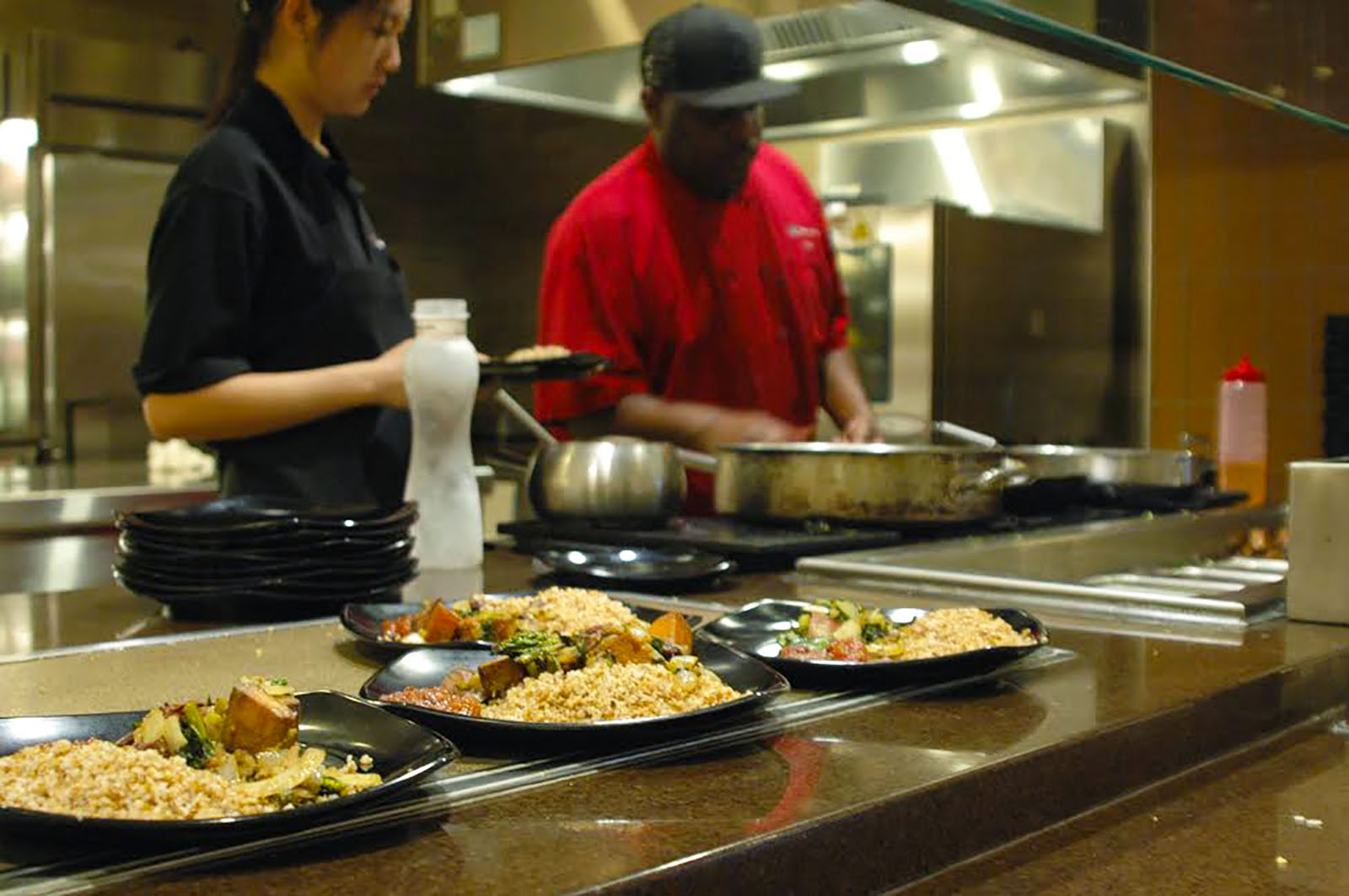
In response to student feedback, Boston University Dining Services upgraded the vegan stations at its three dining halls on campus, introducing several new menu options like “Vegan Your Way.”
Now every Tuesday at lunch and Thursday at dinner, students will be able to create their own vegan dish by choosing from a variety of protein, vegetable, starches and sauces.
https://twitter.com/budiningservice/status/773179581981491200
BU Dining Service spokesperson Scott Rosario said that throughout the school year, he and his colleagues receive student comments through surveys, interest group meetings and social media.
Through the most recent survey, Rosario said, the BU dining staff learned that 10 percent of students who responded to the survey said they follow a vegetarian diet, 2 percent said they are vegan and 28 percent said they have moderate or high interest in frequenting a vegetarian or vegan location.
“Each year, there is slight growth [in] the total number of students who are interested in vegan dining options,” he said.
Justin Castillo, a freshman in the College of Arts and Sciences, said he eats the vegan options because it helps with his endurance.
“That’s why I look for options like that,” he said. “Meals that have a higher iron content or is high in carbohydrates.”
Aoife Madden, a CAS freshman, said she views the vegan station as a healthier alternative to the other dining hall options.
“It seemed like a healthy option instead of the pastas and pizza, so I wanted to try something else,” Madden said.
Madden said although she isn’t a vegetarian or vegan, she eats the vegan options “a few times a week” because they are more appealing.
“Some of the other stuff gets very repetitive, and [vegan food] tastes better,” she said. “It has more variety and it’s healthier.”
The university’s vegan-friendly path started when Peta2, the youth outreach branch of PETA, called for BU dining halls to provide vegan options on campus. The petition received more than 1,000 signatures, The Daily Free Press reported on Oct. 22, 2009.
In the past several years, BU has received an “A” grade from Peta2 because BU’s dining halls adopted these suggestions and provided vegan report cards, Rosario said.
Joan Salge Blake, a nutrition professor in the Sargent College of Health and Rehabilitation Sciences, said BU Dining Services is providing more dining options to make students feel comfortable ordering food.
“[BU] has gluten-free for those who need to watch for gluten in their diet,” she said. “And vegan is another great example of having a menu items that people who do not want to have animal products will have a healthy alternative.”
While providing alternative vegan options does not necessarily mean that the university has to invest more money in its operations, Salge Blake said it’s comforting to learn that BU is making changes based on student feedback.
“More than ever, colleges are now looking to hear what their students are saying about the kind of foods that they want in the cafeteria,” Salge Blake said. “BU is way ahead of the curve here in providing the dining options that are healthy, delicious and inclusive.”
Caitlin Parker, a CAS freshman, said as a vegetarian, she appreciates the university’s effort, but sometimes wishes there are more non-meat options.
“I’ve noticed that today that there were chicken at every other station besides this vegan station,” Parker said while dining in the Fresh Food Company at Marciano Commons at 100 Bay State Rd. “It’s nice that they consistently have something that doesn’t have meat in it so you’ll always find one place that has no meat in it.
Parker said she appreciated the look and smell of the meatless option, and the “bright and colorful” vegan station often catches her eyes.
“I have a lot of curry at home, so it was familiar,” she said.


















































































































